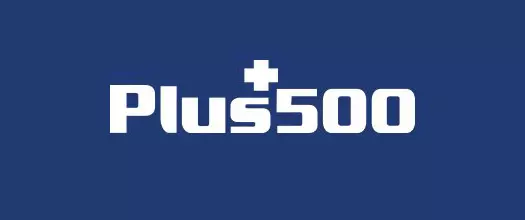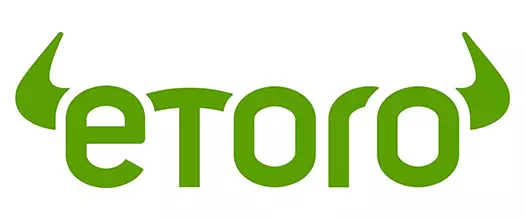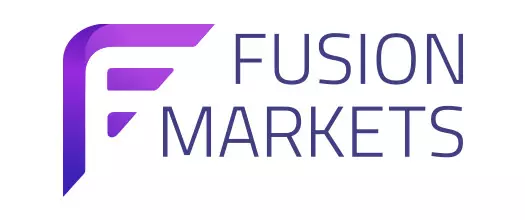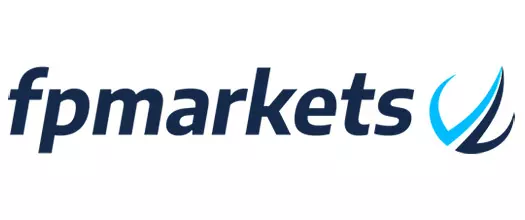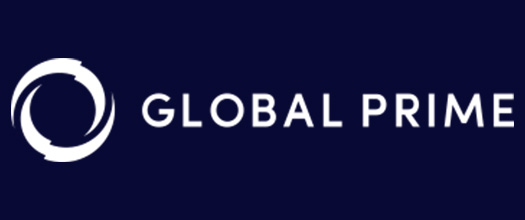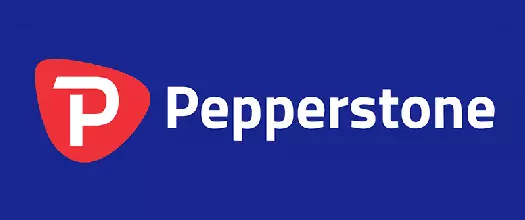- Jump to:
- Main features of the best France Forex brokers
- Forex Legislation
- Financial Regulators
- Payment Methods
- Trading Software
- Mobile Trading
- FAQ
Our team of expert traders has tested many regulated and trustworthy Forex brokers that accept traders from France and has compiled a top list of the best among them. Each broker operating in France received a quality score based on several factors, including Trustpilot rating, regulation, fees and commissions, available trading platforms, customer service, and more.
 Plus500 USThis content applies only to Plus500 US and clients from the United States. Trading futures involves the risk of loss.
Plus500 USThis content applies only to Plus500 US and clients from the United States. Trading futures involves the risk of loss. eToro61% of retail investor accounts lose money
eToro61% of retail investor accounts lose money Fusion Markets74-89% of retail's CFD accounts lose money
Fusion Markets74-89% of retail's CFD accounts lose money FP Markets73.85% of retail investor accounts lose money
FP Markets73.85% of retail investor accounts lose money Global Prime74-89% of retail CFD accounts lose money
Global Prime74-89% of retail CFD accounts lose money Pepperstone75.5% of retail investor accounts lose money
Pepperstone75.5% of retail investor accounts lose money
Below you can find a comprehensive comparison table of Forex brokers for traders in France. We rank them based on several factors, including regulation, spreads and commissions, Trustpilot rating, trading instruments, trading platforms, and deposit and withdrawal methods.
Our team has thoroughly evaluated all brokers listed below using TradingPedia’s exclusive methodology.
Main features of the best France Forex brokers
- Brand
- Trading platforms
- Minimum deposit
- Regulations
- Trading instruments
- Spreads
- Leverage for Forex CFDs
- Leverage for Crypto CFDs
- Leverage for Indices CFDs
- Deposit methods
- Withdrawal Methods
- Commission per Lot
- Contact details
With a gross domestic product of €2.3 trillion, France ranked as the third-largest European economy in 2018, surpassed only by the United Kingdom (2nd place) and Germany (1st place). The country has a long history of participation in the European and global financial markets, with French citizens enjoying numerous opportunities thanks to its membership in the European Union (EU).
France is also one of the founding states of the EU, alongside five other economic powers – Italy, the Netherlands, Luxembourg, Germany, and Belgium. The country replaced the French franc back in 2002 and has been using the euro as its national currency ever since.
Considering its economic background, it is not surprising France boasts one of the largest and most dynamic foreign exchange markets in Europe. Nevertheless, the country has adopted a rather conservative stance towards Forex trading where rules and regulatory frameworks are concerned.
Despite the strict regulations, foreign exchange trading remains quite popular among French traders. Brokers authorised to service this market provide customers with a broad choice of currency pairs alongside other financial instruments, including the notorious contracts for difference.
Tight restrictions were introduced to curb risk exposure and prevent French retail traders from suffering enormous losses. Historically, the country’s financial regulators have always tried to guide the general public away from higher-risk investments towards more conservative trading instruments such as the stock market.
In this article, we take a detailed look at France’s legal framework with regard to trading on the foreign exchange markets and the restrictions imposed by the draconian local regulator, the Autorité des Marchés Financiers (AMF). We also provide answers to common questions about payments and software that beginner traders from France may have.
France Forex legislation
Trading currencies against each other on the Forex markets is currently legal on French soil, provided that the brokers offering the services have obtained authorisation from the local regulator, the AMF. The Forex market is regulated under the provisions of the Financial Security Act of 2003, whose enforcement also led to the establishment of the AMF.
All brokerage firms willing to do business with French citizens are expected to provide guaranteed stop-losses on customers’ positions. Before traders open a position, they must inevitably enter a stop-loss for it. It is impossible to increase the stop-loss level once the order has been executed. This way, French customers can lose less than initially anticipated for the respective position.
Another condition set forth by the French regulator stipulates that authorised brokerages must provide negative balance protection to their clientèle. This policy prevents customers from losing more than the available balance they have in their trading accounts, particularly when investing in leveraged derivatives. The negative balance protection does not apply to professional trading accounts, however.
While we are on the subject of derivatives, buying contracts for difference (CFDs) is also legal in the country but with some restrictions due to the significant level of risk involved when trading with such volatile instruments. The restrictions entered into force at the beginning of August 2019.
The new protective measures are a continuation of the restrictions enforced by the European Securities and Markets Authority (ESMA) during the previous year. They apply to the advertising, distribution and sale of CFDs to French retail investors.
The maximum leverage for foreign exchange CFDs should not exceed 1:20 for minor pairs and 1:30 for major ones. The limit for minor pairs is lower because the price movements here are much sharper.
The rule of thumb when it comes to leverage restrictions is generally the higher the volatility of a given financial instrument, the lower the maximum leverage that is permitted.
Furthermore, brokerages must be transparent about the percentage of customers who lose money on leveraged derivatives. They are expected to display this percentage prominently on their websites where all customers can see it.
The percentage of losing traders is important because it reflects on the brokerage firms’ trade execution, the level of education they provide to customers, and so on. In fact, this should be among the key factors to consider before one chooses a brokerage.
Certain conditions pertaining to margin must also be met. Brokers should close down their customers’ open positions whenever the account balance falls below the 50% minimum required margin threshold.
But this is not all. In 2017, the financial watchdog officially outlawed the advertising of over-the-counter derivatives with leverage that exceeds 1:5. The marketing restrictions apply to all leveraged derivatives, including Forex, CFDs and binary options.
Things may soon change, however, since the French regulator proposed to ban the advertising of CFDs altogether in March 2019. As for retail trading with binary options, this practice is also outlawed in France.
It was established that, structurally, this instrument offers negative expected returns, which is why the binary options sector has been in decline for the past several years. As a general rule, EU-regulated brokerage firms are not allowed to offer deposit bonuses or other promotional incentives to their customers.
Brokers that violate the French regulatory guidelines and target customers from the Hexagon country without the authorisation of the local regulator are typically added to a blacklist. Their websites are blocked to prevent any access by French residents.
The same goes for those who continue to provide trading in binary options illicitly in spite of the prohibition. As of May 2018, the local regulator reported it had closed down more than 138 illegal binary options and foreign exchange websites in a three-year period. The list is updated regularly as new unauthorised brokers are added.
France financial regulators
The main body that supervises the foreign exchange market in the Hexagon country is the Autorité des Marchés Financiers, or simply AMF. This independent entity was established after the passage of the Financial Security Act, officially enforced at the beginning of August 2003.
The AMF has been mandated with the role of regulating and safeguarding investments in various financial instruments, but it also has several other objectives. Among those are ensuring investors have access to sufficient information so they can make well-informed investment decisions. The entity is also tasked with maintaining orderly and balanced financial markets in the country.
Both locally based and foreign brokerage firms are required to apply for and obtain licences issued by the AMF if they are looking to operate legally on French soil. To receive such a document, the firms must meet all of the requirements we discussed earlier.
In other words, they must store their clients’ funds in segregated accounts, offer negative balance protection, comply with the limits on maximum leverage, refrain from offering bonuses to French nationals, and undergo regular external audits. Additionally, the companies must provide evidence that they meet the minimum threshold for operational capital, which stands at €750,000.
As for those who operate illegally in the country, they have their websites added to the constantly expanding blacklist. The French regulator holds official meetings with the High Court of Paris once every two months. During the meetings, the two entities review proposals to shut down brokerages that operate in the country without authorisation.
It should be mentioned that the AMF falls under the umbrella of an important piece of legislation known as the Markets in Financial Instruments Directive II (MiFID II). Enforced in 2018, it aims to increase competition, boost transparency and ensure investor protection in EU member states.
The purpose of this law is to provide unified regulations on investment services carried out in the Union. Under this directive, all brokerages that operate in the EU must follow harmonised regulations.
Therefore, a licence issued by entities like the AMF or the Cyprus Securities and Exchange Commission (CySEC) would provide a brokerage with the opportunity to offer its services in all other EU member states where foreign exchange and CFD trading are legal.
The financial sector in the country is also supervised by the Autorité de Contrôle Prudentiel et de Résolution (ACPR). This is an independent administrative body under the auspices of the country’s central bank, Banque de France. The ACPR is tasked with the oversight of the banking institutions and insurance companies that operate on French soil.
Finally, there is the European Securities and Markets Authority (ESMA), which has its headquarters in the French capital of Paris. The main idea behind the foundation of this supranational authority was to establish an EU-wide financial market regulator.
France Forex payment methods
When choosing a France foreign exchange brokerage, it is essential to consider which payment methods the company works with. Money transfers to and from your Forex account should be conducted easily, quickly and, above all, safely.
Each broker has its own list of payment methods as well as individual limits on deposits, withdrawals and lot sizes. Many brokers offer multiple account types, including micro accounts with lower minimum deposit requirements and lot sizes.
Macro accounts are recommended for professional, high-net-worth traders who transfer more substantial amounts to their balance. Respectively, the minimum deposit limits for macro accounts are considerably higher, usually five-figure amounts.
As for the payment methods, these are broker-specific. The best way to get a good idea of what solutions are available is to visit the website of your chosen France-friendly brokerage and check the banking section. There, you will be able to see all the methods supported for your country.
With that said, some of the most common options French traders use to fund their Forex accounts include credit and debit cards such as those by Mastercard, Maestro and Visa. Figures provided by the German statistics portal Statista show the most popular payment methods in the country for 2017/2018 were debit and credit cards. Many French traders prefer to use them because there are generally no commission fees on card payments and processing times are short.
Bank transfers are also widely used by French traders, although this option is significantly less time-efficient. There are discrepancies in the waiting timeframes at different brokerages, but in many cases you must wait for three to five business days until the funds hit your live account balance.
E-wallets are a convenient alternative for French traders who do not own credit or debit cards but still insist on time-efficient payments. These are essentially virtual wallets where you can store your trading money.
You must register and verify your account so you can take advantage of your e-wallet’s full capabilities. Then you can fund its balance with a card, a bank transfer or even another e-wallet.
French traders can retain their confidentiality when paying with an e-wallet. In addition to time-efficiency, this is yet another advantage of using this method.
The most popular e-wallet service in France is provided by PayPal, although similar alternatives like Neteller and Skrill are also available.
Popular trading software in France
Another crucial aspect that bears consideration when choosing a France-friendly Forex broker is the trading platform it utilises. A good brokerage should adopt a platform that ensures user convenience.
Customers should be able to place orders quickly and without any hassle. A decent trading platform should be designed in a way that appeals to both beginner traders and professional investors.
This usually means the interface should be intuitive enough while at the same time offering additional functionalities for market analysis. Cross-compatibility is another desirable trait traders look for.
The most popular trading software used in France, MetaTrader 4 (MT4), is courtesy of the Russian company MetaQuotes Software, which licenses it to foreign exchange brokers worldwide. In turn, the licensed brokerages offer the platform to their customers. MT4 enables traders to see live quotes and prices as well as to execute orders with lightning speed.
Its uncluttered interface makes the platform friendly to novice traders. Meanwhile, seasoned professionals have the chance to analyse the markets in depth by taking advantage of different analytical tools like technical indicators, charts and graphical objects. The platform supports multiple languages, including French.
Since MT4 was designed specifically with the needs of Forex traders in mind, some France-friendly brokers offer it in parallel with its successor, MetaTrader 5 (MT5). Some traders complain about this improved version of the software because they do not consider it as user-friendly as its predecessor.
Despite this, MT5 is not without its merits. It supports trading in more financial instruments, including bonds, stocks, options and futures. This renders it more suitable for professional traders who will also benefit from more timeframes, graphical objects and technical indicators.
Although less popular, the Sirix WebTrader is also available at some France-friendly brokerages. Courtesy of Leverate, the platform enables French users to execute foreign exchange and futures trades seamlessly, without the need for additional software installation.
The platform was created in HTML5 and works on both Windows-based and Mac computers. It comes with more than thirty technical indicators, including the popular Bollinger Bands and Ichimoku Clouds.
Traders can identify market trends with the help of the indicators and the featured tools for drawing and analysis. The Sirix WebTrader also enables automated trading. Users can copy the successful positions of fellow traders with more experience.
Mobile trading in France
Smartphone penetration in the Hexagon country has experienced a significant increase over the past decade, with the percentage of smartphone owners rising from 17% to 75% for the period between 2011 and 2018. Owning one such device is no longer a privilege reserved for the wealthiest echelons of society.
The mobile scene of France is mostly dominated by the Android operating system, which boasted more than 27 million active users as of 2017. This corresponds to a market share of roughly 70%. By contrast, Apple’s iOS operating system had a market share of only 23% for the same year.
Considering this, it is only natural that mobile trading is rapidly gaining momentum in France. Trading companies are betting heavily on the progress in mobile technologies. Nearly all France-friendly brokers develop free native applications compatible with the two operating systems that dominate the country’s mobile market, Android and iOS.
The developers of the apps no longer pay attention only to basic functionalities like maintaining a watchlist, viewing one’s trading portfolio and executing trades. They concentrate their efforts on creating apps that bring the comprehensive desktop trading experience to mobile devices.
French mobile traders can now take advantage of a versatile set of features, including various tools for technical analysis, advanced order types, and customisable charts.
